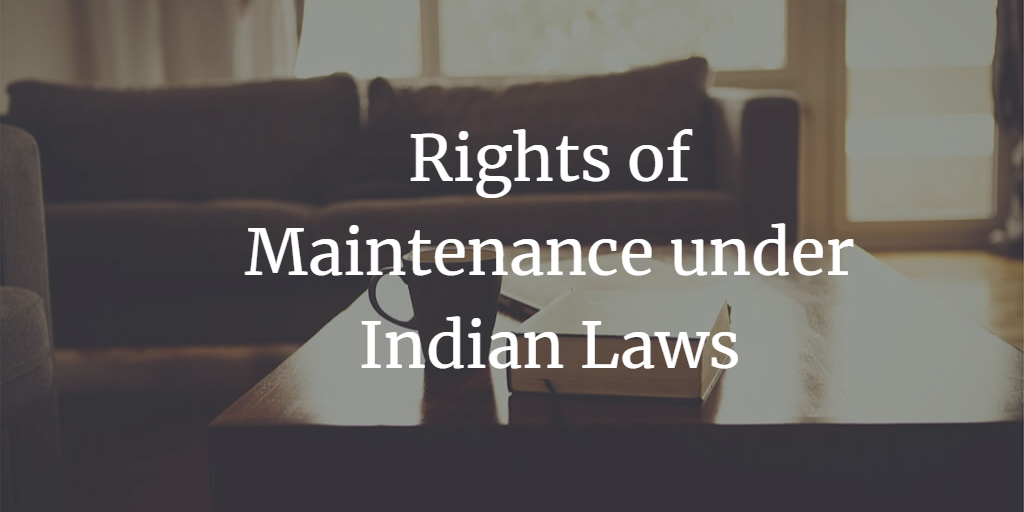Rights of Maintenance under Indian Laws: A Comprehensive Guide

Table of Contents
Maintenance Rights for Spouses
Maintenance Rights for Children
Maintenance Rights for Parents
Factors Influencing Maintenance Awards
Conclusion
1. Maintenance Rights for Spouses
Under Indian law, both husbands and wives have the right to claim maintenance from their spouse in case of separation or divorce. The various acts that govern maintenance for spouses are:
Hindu Marriage Act, 1955: Applicable to Hindus, this act allows both husbands and wives to claim maintenance under Section 24 during litigation and Section 25 as a permanent alimony.
Muslim Women (Protection of Rights on Divorce) Act, 1986: This act entitles a Muslim woman to claim reasonable and fair maintenance from her former husband within the iddat period (three months after divorce).
Indian Divorce Act, 1869: Applicable to Christians, this act provides maintenance rights for spouses under Section 36 (pendente lite) and Section 37 (permanent alimony).
Special Marriage Act, 1954: This act governs civil marriages and interfaith marriages and allows both spouses to claim maintenance under Section 36 (pendente lite) and Section 37 (permanent alimony).
Section 125 of the Code of Criminal Procedure (CrPC), 1973: This section applies to all religions and enables spouses unable to maintain themselves to seek maintenance from their spouse.
2. Maintenance Rights for Children
Children have the right to be financially supported by their parents until they become self-sufficient. The following laws govern the maintenance rights of children in India:
Hindu Adoption and Maintenance Act, 1956: This act obliges Hindu parents to maintain their legitimate or illegitimate children, including married daughters, until they become self-sufficient.
Section 125 of the CrPC, 1973: This section applies to all religions and allows children unable to maintain themselves to seek maintenance from their parents.
3. Maintenance Rights for Parents
Parents who are unable to maintain themselves have the right to seek maintenance from their children. The laws governing parents' maintenance rights in India are:
Hindu Adoption and Maintenance Act, 1956: This act requires Hindu children to maintain their aged and infirm parents if they are unable to maintain themselves.
Section 125 of the CrPC, 1973: This section applies to all religions and enables parents unable to maintain themselves to claim maintenance from their children.
4. Factors Influencing Maintenance Awards
The courts consider several factors when determining the amount of maintenance to be awarded, such as:
Financial status and income of both parties
Age and health of the parties
Duration of the marriage
Living standard maintained during the marriage
Earning capacity and employment potential of the dependent spouse
Child custody and related expenses
Any other relevant factors
5. Conclusion
Understanding the rights of maintenance under Indian laws is crucial for spouses, children, and parents who may require financial support in various circumstances. By being aware of the legal provisions and entitlements, individuals can better navigate the maintenance process and protect their rights. It is advisable to consult a qualified family lawyer to assist in understanding and claiming maintenance rights under the applicable laws.


